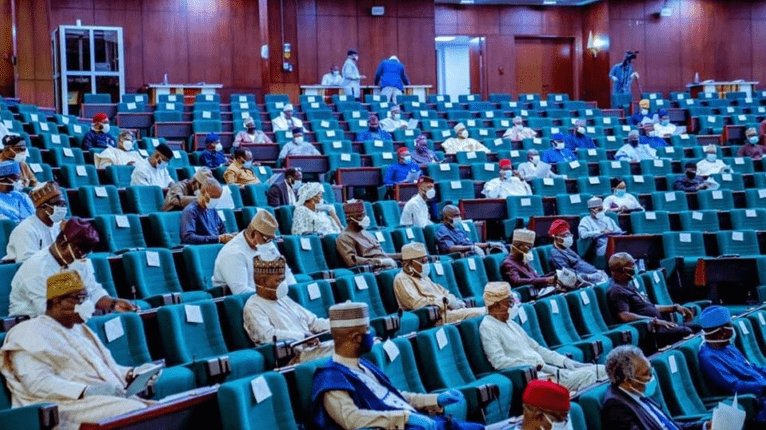The House of Representatives on Wednesday declared the current economic situation of Nigeria as being the worst since 1983.
Besides, the House resolved to investigate the “immediate and remote causes” of rising inflation and the cost of food items in the country.
The legislators also resolved to set up a meeting with critical stakeholders in the country to address the frightening rise in prices of goods.
The resolutions also include engagement with captains of industries, trade unions, the organised private sector and other promoters in the economic sector, on ways for a drastic reduction in prices of goods and services in the country.
The House further noted that it is opened to “any other strategies that can mitigate the effects of the current inflation in the country.”
These followed the adoption of a motion on matters of urgent public importance brought by Ibrahim Isiaka (APC-Ogun), calling attention to the “urgent need to investigate the skyrocketing prices of commodities, goods and services across the nation with a view to cushioning the impact on the citizens”.
Presenting the motion at the plenary, the lawmaker said that “unfortunately, this is still the lowest decline Nigeria’s economy has experienced since 1983”.
He said, “What does this mean for the average Nigerian? Not too farfetched, because life has become increasingly difficult for many Nigerians, especially the low-income earners, unemployed youth, other vulnerable people, those on fixed incomes such as the pensioners and others.”
He said the prices of food items, commodities, goods and services have skyrocketed by as much as 100 per cent in many parts of Nigeria in the last one year, as a result of monetary policy, border closures, COVID-19 containment measures, and insecurity, causing Nigeria’s inflation rate to rise in geometric progression in August 2021.
“Price index in the past months has increased astronomically owing to many controllable and uncontrollable factors with inflation at a 48-month high, posing the challenge for increased spending on housing, shelter, medicals, clothes, baby food and even cooking gas, because our nation’s local production still falls short of our local demand.
“Minding the population, climate change, and hunger – a major future issue looms if, immediate remedial action is not taken soon by this House.
“Cognizant of the World Bank`s report that Nigeria’s economy contracted by -1.8% in 2020, lower than the -3.2% loss the organization had predicted at the beginning of the pandemic.
“All these problems bedevilling our economy, the House is spurred on a move to properly manage the situation before it spreads out of control owing to the impacts on the cost of living, the cost of doing business, and every other facet of the economy”, the motion stated.
It, therefore, prayed the House to mandate the leadership to constitute a special committee to investigate the situation and proffer solution.
Copyright Ships & Ports Ltd. Permission to use quotations from this article is granted subject to appropriate credit given to www.shipsandports.com.ng as the source.

